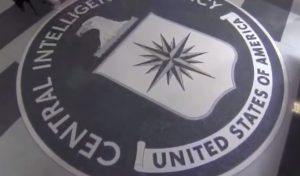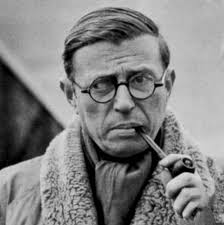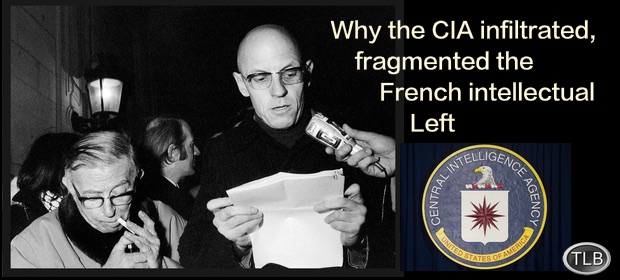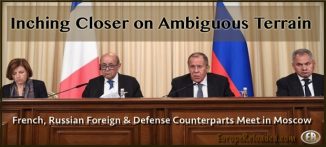GABRIEL ROCKHILL
It is often presumed that intellectuals have little or no political power. Perched in a privileged ivory tower, disconnected from the real world, embroiled in meaningless academic debates over specialized minutia, or floating in the abstruse clouds of high-minded theory, intellectuals are frequently portrayed as not only cut off from political reality but as incapable of having any meaningful impact on it. The Central Intelligence Agency thinks otherwise.
 As a matter of fact, the agency responsible for coups d’état, targeted assassinations and the clandestine manipulation of foreign governments not only believes in the power of theory, but it dedicated significant resources to having a group of secret agents pore over what some consider to be the most recondite and intricate theory ever produced. For in an intriguing research paper written in 1985, and recently released with minor redactions through the Freedom of Information Act, the CIA reveals that its operatives have been studying the complex, international trend-setting French theory affiliated with the names of Michel Foucault, Jacques Lacan and Roland Barthes.
As a matter of fact, the agency responsible for coups d’état, targeted assassinations and the clandestine manipulation of foreign governments not only believes in the power of theory, but it dedicated significant resources to having a group of secret agents pore over what some consider to be the most recondite and intricate theory ever produced. For in an intriguing research paper written in 1985, and recently released with minor redactions through the Freedom of Information Act, the CIA reveals that its operatives have been studying the complex, international trend-setting French theory affiliated with the names of Michel Foucault, Jacques Lacan and Roland Barthes.
The image of American spies gathering in Parisian cafés to assiduously study and compare notes on the high priests of the French intelligentsia might shock those who presume this group of intellectuals to be luminaries whose otherworldly sophistication could never be caught in such a vulgar dragnet, or who assume them to be, on the contrary, charlatan peddlers of incomprehensible rhetoric with little or no impact on the real world. However, it should come as no surprise to those familiar with the CIA’s longstanding and ongoing investment in a global cultural war, including support for its most avant-garde forms, which has been well documented by researchers like Frances Stonor Saunders, Giles Scott-Smith, Hugh Wilford (and I have made my own contribution in Radical History & the Politics of Art).
Thomas W. Braden, the former supervisor of cultural activities at the CIA, explained the power of the Agency’s cultural assault in a frank insider’s account published in 1967: “I remember the enormous joy I got when the Boston Symphony Orchestra [which was supported by the CIA] won more acclaim for the US in Paris than John Foster Dulles or Dwight D. Eisenhower could have bought with a hundred speeches.” This was by no means a small or liminal operation. In fact, as Wilford has aptly argued, the Congress for Cultural Freedom (CCF), which was headquartered in Paris and later discovered to be a CIA front organization during the cultural Cold War, was among the most important patrons in world history, supporting an incredible range of artistic and intellectual activities. It had offices in 35 countries, published dozens of prestige magazines, was involved in the book industry, organized high-profile international conferences and art exhibits, coordinated performances and concerts, and contributed ample funding to various cultural awards and fellowships, as well as to front organizations like the Farfield Foundation.
The intelligence agency understands culture and theory to be crucial weapons in the overall arsenal it deploys to perpetuate US interests around the world. The recently released research paper from 1985, entitled “France: Defection of the Leftist Intellectuals,” examines – undoubtedly in order to manipulate – the French intelligentsia and its fundamental role in shaping the trends that generate political policy. Suggesting that there has been a relative ideological balance between the Left and the Right in the history of the French intellectual world, the report highlights the monopoly of the Left in the immediate postwar era – to which, we know, the Agency was rabidly opposed – due to the Communists’ key role in resisting fascism and ultimately winning the war against it. Although the Right had been massively discredited because of its direct contribution to the Nazi death camps, as well as its overall xenophobic, anti-egalitarian and fascist agenda (according to the CIA’s own description), the unnamed secret agents who drafted the study outline with palpable delight the return of the Right since approximately the early 1970s.
When Jean-Paul Sartre was closely monitored by the CIA
More specifically, the undercover cultural warriors applaud what they see as a double movement that has contributed to the intelligentsia shifting its critical focus away from the US and toward the USSR. On the Left, there was a gradual intellectual disaffection with Stalinism and Marxism, a progressive withdrawal of radical intellectuals from public debate, and a theoretical move away from socialism and the socialist party. Further to the Right, the ideological opportunists referred to as the New Philosophers and the New Right intellectuals launched a high-profile media smear campaign against Marxism.
 While other tentacles of the worldwide spy organization were involved in overthrowing democratically elected leaders, providing intelligence and funding to fascist dictators, and supporting rightwing death squads, the Parisian central intelligentsia squadron was collecting data on how the theoretical world’s drift to the Right directly benefitted US foreign policy. The left-leaning intellectuals of the immediate postwar era had been openly critical of US imperialism. Jean-Paul Sartre’s (pictured) media clout as an outspoken Marxist critic, and his notable role – as the founder of the daily Libération – in blowing the cover of the CIA station officer in Paris and dozens of undercover operatives, was closely monitored by the Agency and considered a very serious problem.
While other tentacles of the worldwide spy organization were involved in overthrowing democratically elected leaders, providing intelligence and funding to fascist dictators, and supporting rightwing death squads, the Parisian central intelligentsia squadron was collecting data on how the theoretical world’s drift to the Right directly benefitted US foreign policy. The left-leaning intellectuals of the immediate postwar era had been openly critical of US imperialism. Jean-Paul Sartre’s (pictured) media clout as an outspoken Marxist critic, and his notable role – as the founder of the daily Libération – in blowing the cover of the CIA station officer in Paris and dozens of undercover operatives, was closely monitored by the Agency and considered a very serious problem.
In contrast, the anti-Soviet and anti-Marxist atmosphere of the emerging neoliberal era diverted public scrutiny and provided excellent cover for the CIA’s dirty wars by making it “very difficult for anyone to mobilize significant opposition among intellectual elites to US policies in Central America, for example.” Greg Grandin, one of the leading historians of Latin America, perfectly summarized this situation in The Last Colonial Massacre: “Aside from making visibly disastrous and deadly interventions in Guatemala in 1954, the Dominican Republic in 1965, Chile in 1973, and El Salvador and Nicaragua during the 1980s, the United States has lent quiet and steady financial, material, and moral support for murderous counterinsurgent terror states. […] But the enormity of Stalin’s crimes ensures that such sordid histories, no matter how compelling, thorough, or damning, do not disturb the foundation of a worldview committed to the exemplary role of the United States in defending what we now know as democracy.”
It is in this context that the masked mandarins commend and support the relentless critique that a new generation of anti-Marxist thinkers like Bernard-Henri Levy (pictured), André  Glucksmann and Jean-François Revel unleashed on “the last clique of Communist savants” (composed, according to the anonymous agents, of Sartre, Barthes, Lacan and Louis Althusser). Given the leftwing leanings of these anti-Marxists in their youth, they provide the perfect model for constructing deceptive narratives that amalgamate purported personal political growth with the progressive march of time, as if both individual life and history were simply a matter of “growing up” and recognizing that profound egalitarian social transformation is a thing of the – personal and historical – past. This patronizing, omniscient defeatism not only serves to discredit new movements, particularly those driven by the youth, but it also mischaracterizes the relative successes of counter-revolutionary repression as the natural progress of history.
Glucksmann and Jean-François Revel unleashed on “the last clique of Communist savants” (composed, according to the anonymous agents, of Sartre, Barthes, Lacan and Louis Althusser). Given the leftwing leanings of these anti-Marxists in their youth, they provide the perfect model for constructing deceptive narratives that amalgamate purported personal political growth with the progressive march of time, as if both individual life and history were simply a matter of “growing up” and recognizing that profound egalitarian social transformation is a thing of the – personal and historical – past. This patronizing, omniscient defeatism not only serves to discredit new movements, particularly those driven by the youth, but it also mischaracterizes the relative successes of counter-revolutionary repression as the natural progress of history.
Even theoreticians who were not as opposed to Marxism as these intellectual reactionaries have made a significant contribution to an environment of disillusionment with transformative egalitarianism, detachment from social mobilization and “critical inquiry” devoid of radical politics. This is extremely important for understanding the CIA’s overall strategy in its broad and profound attempts to dismantle the cultural Left in Europe and elsewhere. In recognizing it was unlikely that it could abolish it entirely, the world’s most powerful spy organization has sought to move leftist culture away from resolute anti-capitalist and transformative politics toward center-left reformist positions that are less overtly critical of US foreign and domestic policies.





